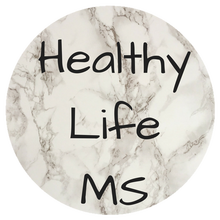Vitamin D is important to maintain healthy teeth, bones and muscles; in 2016 the government Scientific Advisory Committee on Nutrition (SACN) recommends that every person living in the UK aged over 1 years old requires 10 micrograms (400 iu)per day, which may be difficult to achieve for PwMS who have difficulties in getting outside regularly, who suffer from worsening of symptoms in the heat or have been taking long courses of steroids. It may be recommend that you take a supplement as it can be difficult to mort out how much of the foods listed constitute the recommend amount. Adequate levels of Vitamin D are important to reduce the risk of osteoporosis as we age, particularly if you are less mobile.
Vitamin D has long provoked interest among the research community largely due to evidence that more cases of MS are diagnosed as you move further away from the equator; this may suggest a link between reduced exposure to sunlight and subsequent reduction in Vitamin D production leading to the development of MS. Another important aspect concerning Vitamin D is its potential role affecting the disease course in linking low levels with number of relapses. There is some evidence that low levels of Vitamin D may be linked to a higher number of relapses and greater disability. Vitamin D can be stored in the body for a short amount of time so it is not necessarily needed daily.
Vitamin D can be obtained in a number of ways:
1. Sunlight
The best way to get Vitamin D is through sunlight; the body can manufacture the vitamin when exposed to sunlight (without an SPF so be mindful of only staying outside without protection for a short time as this can increase the risk of developing skin cancer). Generally sitting outside in the UK for 20-30 minutes each day during May and September should give you enough Vitamin D, however during the winter months the sunlight is generally not strong enough for Vitamin D to be produced.
2. From the diet
Vitamin D is found in some foods including oily fish (such as salmon, sardines or cod liver oil). A smaller amount is found in eggs, fortified spreads and breakfast cereals and also powdered milk. Remember that it does not need to be consumed every day as the body can store a little for future use.
3. Supplementation under the guidance of a medical professional
For some PwMS (and indeed the general population) supplementation may be the best route to getting the required amount of Vitamin D.
Vitamin D has long provoked interest among the research community largely due to evidence that more cases of MS are diagnosed as you move further away from the equator; this may suggest a link between reduced exposure to sunlight and subsequent reduction in Vitamin D production leading to the development of MS. Another important aspect concerning Vitamin D is its potential role affecting the disease course in linking low levels with number of relapses. There is some evidence that low levels of Vitamin D may be linked to a higher number of relapses and greater disability. Vitamin D can be stored in the body for a short amount of time so it is not necessarily needed daily.
Vitamin D can be obtained in a number of ways:
1. Sunlight
The best way to get Vitamin D is through sunlight; the body can manufacture the vitamin when exposed to sunlight (without an SPF so be mindful of only staying outside without protection for a short time as this can increase the risk of developing skin cancer). Generally sitting outside in the UK for 20-30 minutes each day during May and September should give you enough Vitamin D, however during the winter months the sunlight is generally not strong enough for Vitamin D to be produced.
2. From the diet
Vitamin D is found in some foods including oily fish (such as salmon, sardines or cod liver oil). A smaller amount is found in eggs, fortified spreads and breakfast cereals and also powdered milk. Remember that it does not need to be consumed every day as the body can store a little for future use.
3. Supplementation under the guidance of a medical professional
For some PwMS (and indeed the general population) supplementation may be the best route to getting the required amount of Vitamin D.
Sources:
MS Society (2016) Diet and Nutrition booklet
MS Trust (2014) Diet Factsheet
MS Society (2016) Diet and Nutrition booklet
MS Trust (2014) Diet Factsheet
